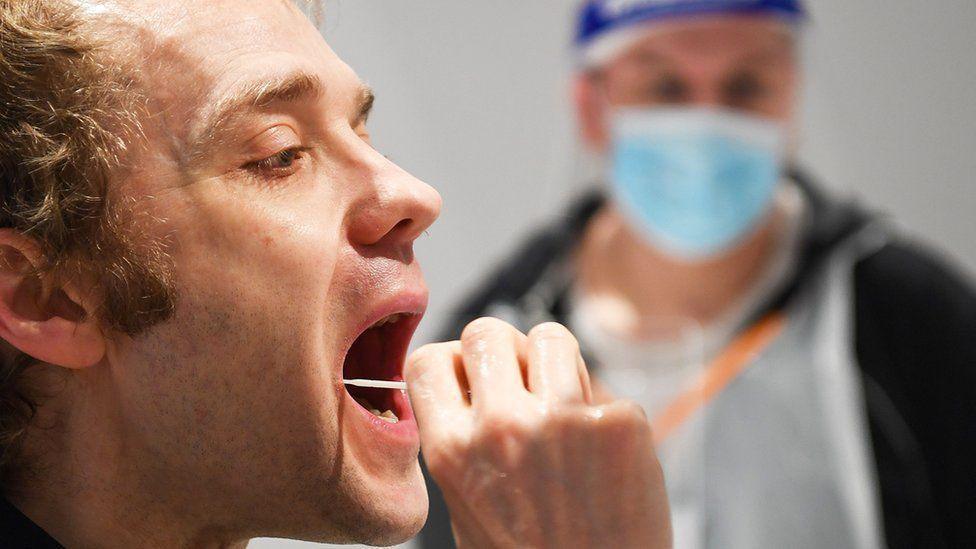Omicron wave behind move to rely more on lateral flow testing

Free LFT kits are available for all islanders to collect or apply for online
At a glance
Guernsey's Covid testing strategy is changing due to a wave of cases of the Omicron variant
Anyone with a positive result to a lateral flow test will no longer be automatically referred for a PCR
The increased reliance on lateral flow testing within the community aims to stop services being overwhelmed
- Published
The States of Guernsey has announced changes to the island's testing strategy in response to an increase in cases of the Omicron variant.
There will be an increased reliance on LFTs so services do not become "overwhelmed" during a wave of Omicron infections.
Dr Nicola Brink, director of public health, said in the days leading up to Christmas, there was a significant increase in the number of positive cases and 80-90% of these were the Omicron variant.
The last reported official figures are for the 24 December and show the island had reached a new high for active case with 1,027.
Dr Brink said: "This tells me that we are now in our Omicron wave.
"We simply don't have the resources to effectively manage such significant case numbers while also scheduling everyone for PCR tests and handling all the necessary contact tracing".
Islanders are asked to take a lateral flow test (LFT) should they become symptomatic. If this is negative, then they should book a PCR test.
Those who receive a positive LFT test must immediately notify the States of Guernsey using either the clinical helpline or online, but will no longer automatically be referred for a PCR test.
PCR testing will primarily be used in high-risk situations, testing of health and care staff, and staff serving other parts of critical infrastructures, the States said.
It said: "Community testing utilising LFTs has been proven to be a very reliable diagnostic method."
Dr Brink said it remains strongly recommended that islanders take regular LFTs for surveillance purposes as large numbers of Omicron cases are expected in the coming weeks, Dr Brink said.
"We really need the community's support, by everyone continuing to do the right thing, to help us slow the spread of this variant. We simply cannot afford to have huge numbers of people, particularly those delivering essential services, catch the virus at the same time. The island will struggle to continue running if that happens," Dr Brink added.